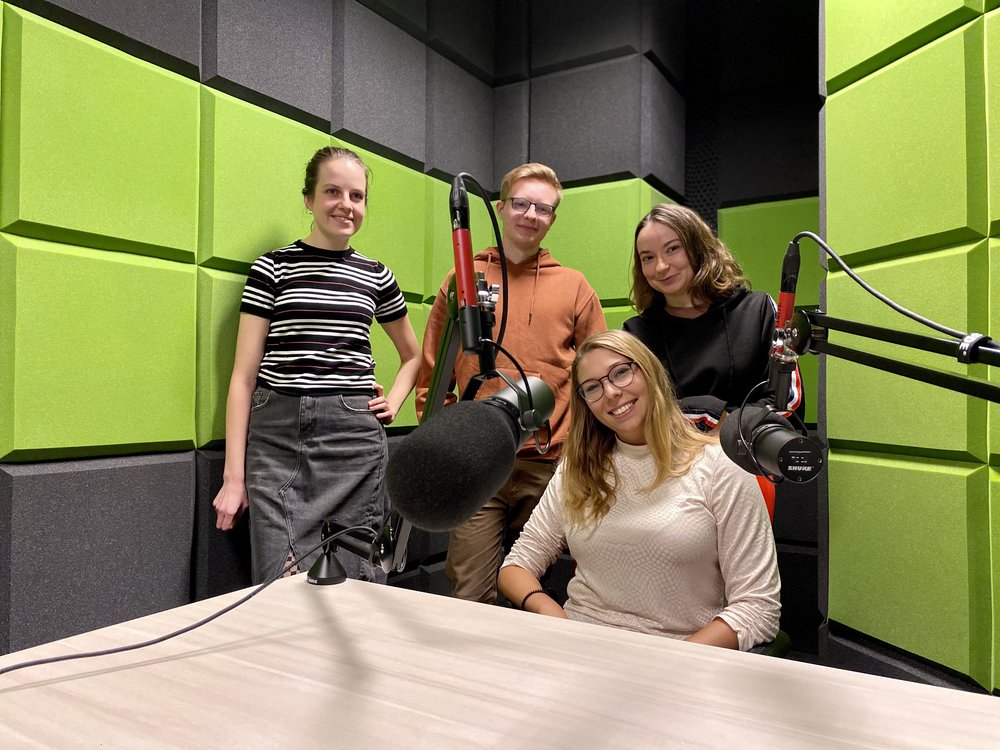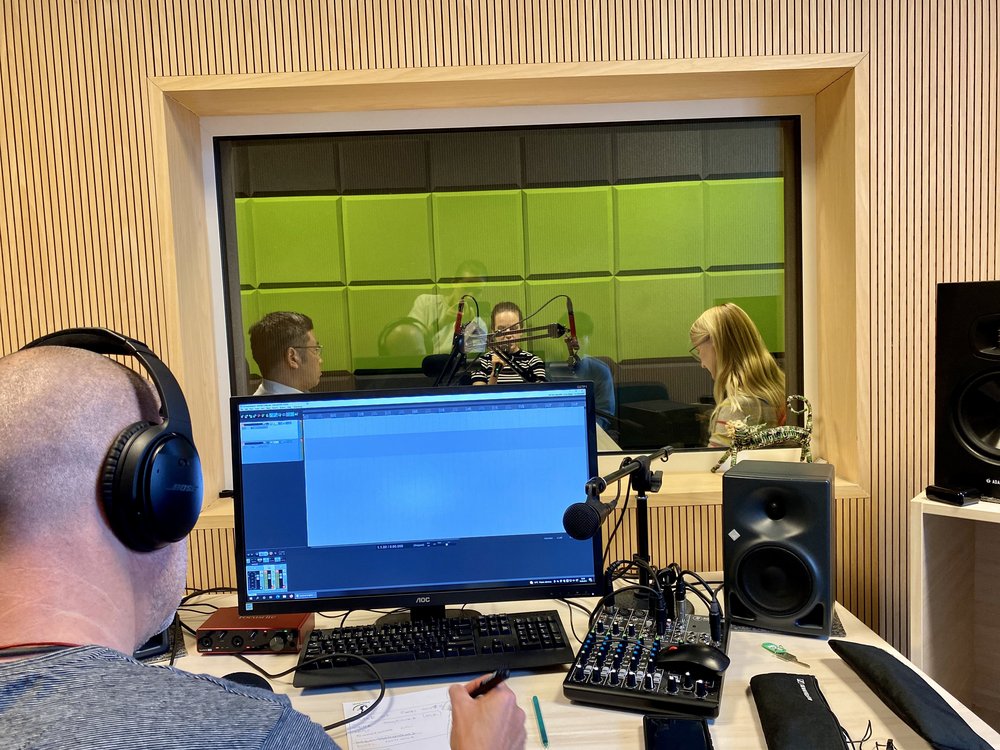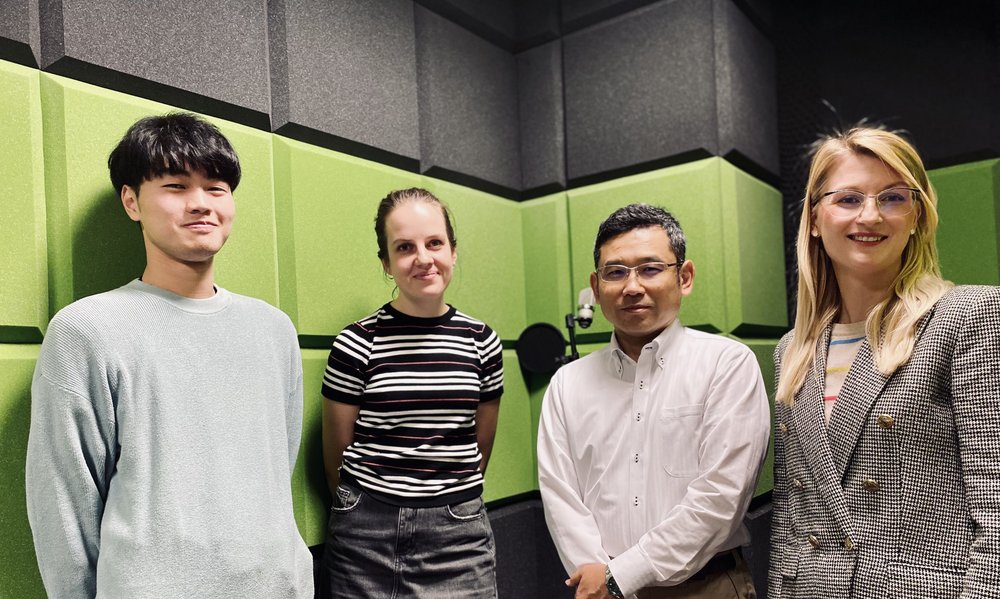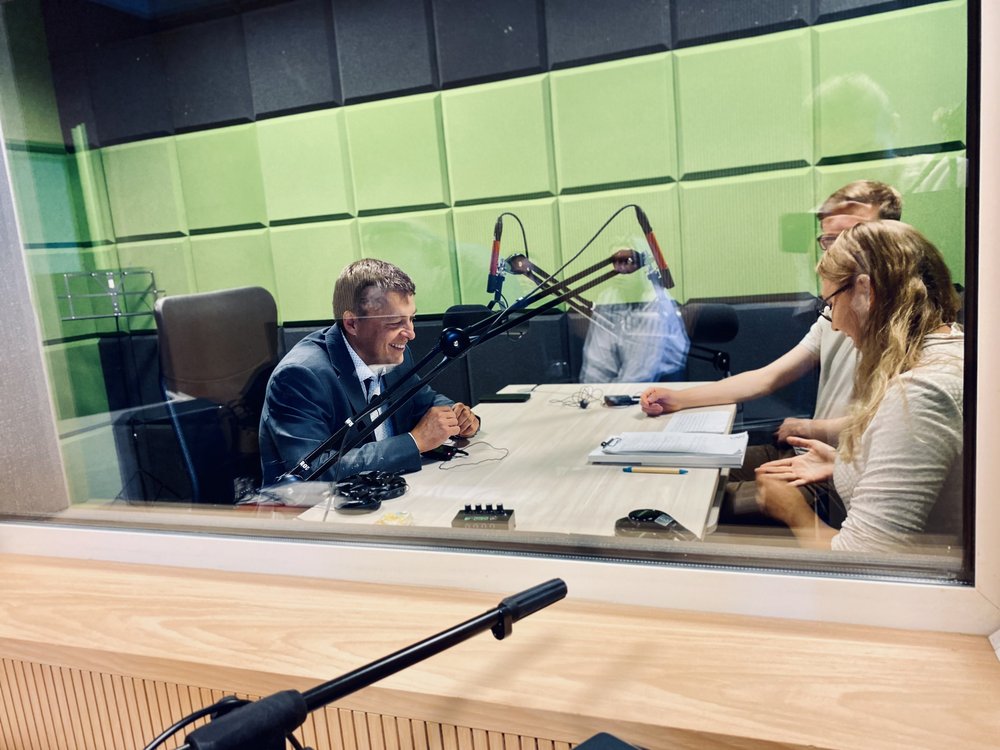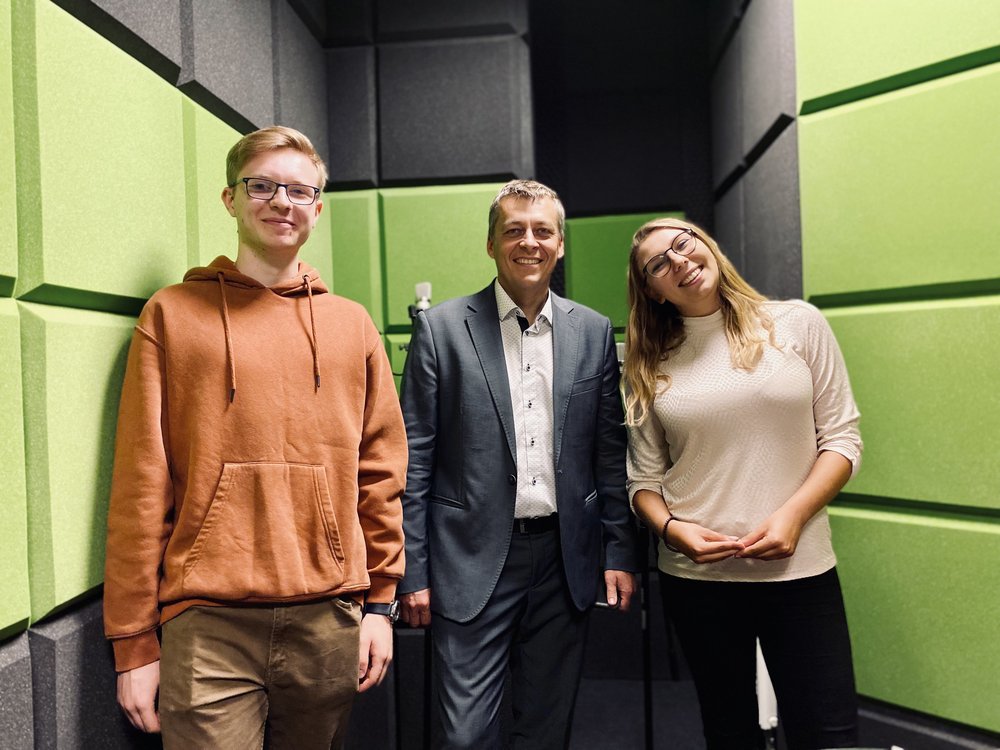"WyWODY po Łódzku" is a series of discussions initiated and hosted by the Science Club for Ecohydrology of the University of Lodz. Members of the club want to broaden the public's knowledge of water resource challenges and modern, close-to-nature solutions to improve the quality of aquatic ecosystems.
Czy rośliny mogą uratować świat? Badania podstawowe i wdrożeniowe dla usuwania zanieczyszczeń z gleby [Can plants save the world? Basic and implementation research for soil remediation]
Can plants help us clean up the environment? They certainly can. Many edible plants, however, (e.g. cucurbits, including courgettes and cucumbers) can accumulate persistent organic pollutants (POPs). How can we find the trade-off between maintaining healthy ecosystems and production of safe food?
These (and other) questions are answered by Prof. Magdalena Urbaniak from the Department of UNESCO Chair on Ecohydrology and Applied Ecology, and the European Regional Centre for Ecohydrology, who is the coordinator of the IDUB project entitled 'Control of bioaccumulation of Persistent Organic Pollutants in cucurbitaceous plants – production of safe food vs. bioremediation of contaminated sites'. Prof Urbaniak's day-to-day research interests include biological methods for the removal of POPs and newly emerging pollutants such as bio-, phyto- and rhizoremediation.
The second interviewee is Prof. Hideyuki Inui (Biosignal Research Centre, Kobe University, Japan), who was in Poland as part of a joint Polish-Japanese project under a scientific cooperation agreement between the Polish Academy of Sciences and the Japan Society for the Promotion of Science (JSPS) (Prof. Magdalena Urbaniak is its Polish coordinator on behalf of the Polish Academy of Sciences). Prof. Inui's day-to-day work involves studying the above-mentioned processes at the molecular level, concerning the mechanisms of uptake, transport, accumulation and metabolism of contaminants in plants (including cucurbits), particularly in terms of producing safe food.
The basic research conducted within the framework of the cooperation between the University of Lodz and Kobe University aims at carrying out analyses that will form the basis for the rational design of 'green technologies', whose objective is not only to restore disturbed elements of soil and water ecosystems to their proper state, but also to produce safe edible plants.
Researchers from the University of Lodz in Japan – Research on Cleaning the Soil
Ekohydrologia na co dzień — wdrożenie ekohydrologicznych rozwiązań opartych na naturze w miastach [Ecohydrology in everyday life – the implementation of nature-based ecohydrological solutions in cities]
Climate change not only negatively affects the environment but also the functioning of cities. It has been known for a long time that the ever-increasing urbanisation areas leads to the destabilisation of ecosystems, whose proper functioning is a prerequisite for their provision of the so-called services and goods affecting human life and its quality. Unfortunately, climate change and environmental degradation are proceeding so rapidly that ensuring sustainability must now rely on ecosystems adapting to changing conditions. This means that environmental protection, human interventions in the natural environment and adaptation strategies must be based on sustaining the high diversity and functionality of ecosystems that determine the possibility of safe living.
In the next episode of the podcast “WyWODY po Łódzku”, students of the Science Club for Ecohydrology at the University of Lodz address the topic of adapting cities to climate change. The head of the Department of UNESCO Chair on Ecohydrology and Applied Ecology at the Faculty of Biology and Environmental Protection at the University of Lodz, dr hab. Tomasz Jurczak, UL Professor, talks about implementations aimed at improving not only the quality of life of city dwellers but also the quality of blue-green infrastructure. Using the example of the LIFE projects RadomKlima "Adaptation to climate change through sustainable water management in the urban space of Radom" and EH-REK "Ecohydrological reclamation of recreational reservoirs "Arturówek" (Lodz) as a model approach to the reclamation of urban reservoirs", dr hab. Tomasz Jurczak, UL Professor not only talks about the contemporary challenges of adapting large cities to climate change, but also presents specific solutions aimed at, among other things:
- mitigation of flood and drought risks,
- mitigation of urban flooding resulting from accelerated rainwater run-off due to, among other things, sealing of the urban surface,
- creation of diverse habitats to support the formation and maintenance of biodiversity in urban water management tasks and existing ecosystems,
- reduction of point source pollution inputs to water bodies and reduction of area pollution transport in the landscape.
"WyWody po Łódzku" attempts, in line with scientific knowledge, to answer basic questions to which we often receive incomplete, confusing or unclear explanations. Therefore, experts from the Department of UNESCO Chair on Ecohydrology and Applied Ecology at the University of Lodz and the European Regional Centre for Ecohydrology of the Polish Academy of Sciences, who deal with the topic of water management and protection in urban agglomerations and agricultural areas, are invited to participate in the discussions.
Experts discuss topics such as:
- ecohydrology and its relevance in the contemporary world,
- hydrological problems we face on a daily basis,
- proposals for solutions that can, for example, mitigate the urban heat island effect,
- the role of the public in water conservation.
Source: Science Club for Ecohydrology, University of Lodz;
Edit: Honorata Ogieniewska from the Communications and PR Centre, University of Lodz
